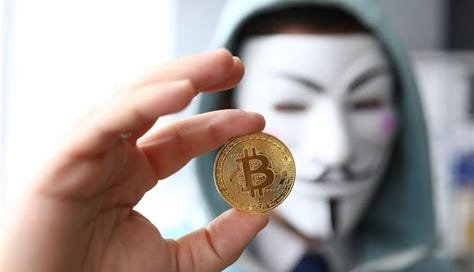A very popular book to read among Bitcoiners is Atlas Shrugged, by Ayn Rand. Indeed, many Bitcoiners are drawn to Ayn Rand’s philosophy and teachings, so I wanted to dive into that a bit more in this week’s post. While some have challenged her philosophy, the core tenets of freedom and liberty are important, especially today. I also dive into what is necessary to ensure freedom and liberty, as well as how Bitcoin can potentially help.
Background of Ayn Rand
Ayn Rand was a Russian-American philosopher and novelist who advocated for Objectivism, a philosophical system that emphasizes individualism, reason, and capitalism. In her philosophy, Rand argues that the pursuit of one's own self-interest, guided by reason, is not only morally right but also leads to the greatest good for society as a whole. She believed that the individual's own happiness should be the highest moral aim, and that the only social system consistent with this goal is laissez-faire capitalism, where the government's role is limited to protecting individual rights. Objectivism holds that reality is objective, that reason is the only means of acquiring knowledge, and that the proper role of the government is to protect individual rights and property.
Breaking down Ayn Rand's Objectivism further:
Individualism: Rand emphasized the importance of the individual over the collective, arguing that individuals should be free to pursue their own self-interest and happiness without interference from the state or others. She believed that the individual should be the ultimate judge of his or her own values and that any infringement on individual rights was a threat to personal freedom.
Reason: Objectivism holds that reason is the only means of acquiring knowledge and that emotions should not guide decision-making. Rand believed that reason and objective evidence should be the basis for all decisions, and that it is through reason that individuals can discover their own values and purpose.
Capitalism: Rand saw capitalism as the only economic system consistent with individual freedom and the protection of individual rights. She believed that the free market, with its profit motive, provides the incentives for individuals to innovate, create, and produce, which leads to a wealthier and more prosperous society.
Objectivity: Objectivism holds that reality is objective, meaning that it exists independently of individual perceptions or beliefs. Rand argued that objective reality can be discovered through the use of reason and that truth can be objectively established.
Ethics: Rand's Objectivist ethics is based on the principle that the ultimate moral aim is the pursuit of one's own happiness, as long as this pursuit does not infringe on the rights of others. She believed that selfishness, in the sense of pursuing one's own interests, is not a vice but a virtue, and that the virtuous person is one who lives a life of rational self-interest.
Bitcoiner Interest in Ayn Rand’s Philosophy
Many Bitcoin enthusiasts are attracted to Ayn Rand's philosophy of Objectivism for a few reasons:
Individualism: Bitcoin provides individuals with a means of financial independence, allowing them to transact and store value without the need for intermediaries. Objectivism's emphasis on individualism aligns with the decentralized nature of Bitcoin and its focus on empowering individuals to control their own financial assets.
Reason: Both Bitcoin and Objectivism place a strong emphasis on reason and logic. Bitcoin's consensus mechanism is based on a combination of mathematics, cryptography, and game theory, which relies on rational decision-making. Similarly, Objectivism holds that reason is the only means of acquiring knowledge and making decisions.
Capitalism: Bitcoin's decentralized and open-source nature creates a level playing field for all participants and aligns with Objectivism's support for a capitalist economy. Bitcoin also operates outside of traditional financial systems and provides individuals with an alternative to centralized monetary systems, which Objectivism views as inconsistent with individual freedom and the protection of individual rights.
Objectivity: Bitcoin's decentralized ledger provides a single source of truth and operates in an objective manner, similar to Objectivism's belief in objective reality. Transactions are recorded on a public ledger, and consensus is reached through the use of cryptographic algorithms, which eliminates the need for subjective interpretations.
Ayn Rand's Objectivism has been the subject of much criticism over the years. Here are a few of the most common critiques:
Ethical Egoism: Critics argue that Objectivism's emphasis on self-interest as the ultimate moral aim is selfish and lacks empathy. They argue that a society that prioritizes self-interest over the welfare of others will result in a lack of cooperation, compassion, and civic responsibility.
Reality is subjective: Some critics argue that reality is not entirely objective and that individual perspectives and interpretations play a role in shaping reality. They argue that Objectivism's emphasis on objective reality oversimplifies the complexity of human perception and experience.
Unworkable in practice: Critics argue that Objectivism's laissez-faire capitalism, with limited government intervention, would result in a society with widespread poverty, inequality, and exploitation. They argue that a just and fair society requires some level of government intervention to regulate the economy and protect the welfare of all citizens. While this is true, too much government involvement is a problem and finding the balance is challenging, which is why less is more.
Objectivism and Emotions: Critics argue that Objectivism's rejection of emotions as a valid source of knowledge is unrealistic and dismissive of the role emotions play in human decision-making. They argue that emotions and intuition can provide valuable insights and guide decision-making, and that ignoring them can lead to poor judgement.
Objectivism and Religion: Objectivism is often criticized for its rejection of religion and spirituality. Critics argue that religion and spirituality provide a sense of purpose and meaning that is essential to human well-being, and that Objectivism's rejection of these concepts is overly narrow and dismissive of the role they play in people's lives. It’s interesting to me that I find generally a lot of traditional values in the Bitcoin community, including and especially spirituality and religion, so perhaps this is one area of disconnect.
Freedom and Liberty are Important: How Do We Secure It?
Ensuring individual freedom and liberty in today's world is a complex issue that requires a multifaceted approach. Here are a few steps that can be taken to protect individual freedom and liberty (you may reflect on many or all of these and note how they are lacking to one degree or another even in the most democratic countries today and certainly lacking in much of the world that lives under authoritarian rule):
Strengthening the rule of law: A robust legal system that is fair, impartial, and transparent is essential for protecting individual freedom and liberty. The rule of law should be upheld, and the judiciary should be independent and impartial, providing individuals with a means of recourse when their rights are violated.
Protecting individual rights: Individual rights, such as freedom of speech, religion, and assembly, must be protected by the state. This requires a strong commitment to civil liberties and human rights, and the enforcement of laws that protect these rights.
Promoting transparency and accountability: Transparency and accountability in government and other institutions are key to preventing abuses of power and corruption. This requires open and transparent government processes, as well as mechanisms for individuals to hold officials accountable for their actions.
Encouraging civic participation: A vibrant and active civil society is critical to the protection of individual freedom and liberty. Encouraging individuals to participate in the political process, engage in public discourse, and advocate for their rights is essential for a healthy and functioning democracy.
Maintaining a free and independent media: A free and independent media is essential for holding those in power accountable and promoting transparency. The media should have the freedom to report on events and issues without fear of censorship or retaliation, and individuals should have access to a wide range of news and information sources. Corporate controlled media seems to work against this, but I’m hopeful that the trend of independent decentralized media organizations and individuals will counteract “narrative messaging.”
Ensuring access to education: Education is essential for promoting critical thinking, fostering civic engagement, and empowering individuals to protect their rights. Access to quality education should be a basic right for all individuals, regardless of their socio-economic status.
How Can Bitcoin Help Ensure Freedom and Liberty?
Bitcoin, as a decentralized digital currency, has the potential to help guarantee freedom and liberty by providing individuals with a means of financial transactions that is not controlled by governments or financial institutions. Here are a few ways that Bitcoin can help ensure freedom and liberty:
Financial freedom: Bitcoin allows individuals to have control over their own finances, without the need for intermediaries. This can help individuals to protect their wealth and financial privacy, and reduce the risk of government or financial institution confiscation or freezing of assets.
Cross-border transactions: Bitcoin allows for fast, secure, and low-cost cross-border transactions, which can help to promote financial freedom and reduce the power of government and financial institutions to control or restrict the flow of money.
Decentralization: Bitcoin's decentralized nature means that it operates on a peer-to-peer network, making it resistant to censorship and control by central authorities. This can help to promote freedom of expression and the free flow of information and ideas.
Financial privacy: Bitcoin provides a high level of financial privacy, allowing individuals to transact anonymously. This can help to protect individuals from government surveillance and the abuse of personal financial information.
Protection against inflation: Bitcoin's finite supply provides protection against inflation, as the supply of coins is capped at 21 million. This can help individuals to protect their purchasing power and financial security.
Not financial or legal advice, for entertainment only, do your own homework. I hope you find this post useful as you chart your personal financial course and Build a Bitcoin Fortress in 2023. To see all my books on investing and leadership, click here.
Always remember: freedom, health and positivity!
Please also check out my Building a Financial Fortress Podcast on YouTube here and on all your favorite streaming platforms. I do a weekly Bitcoin news update every week on current items of interest to the Bitcoin community, usually 30 to 60 minutes depending on the number of topics to cover. Please check it out if you haven’t already.








I haven't. Will need to look into that.
Out of curiosity, have you picked up Michael Malice's "The White Pill" yet?